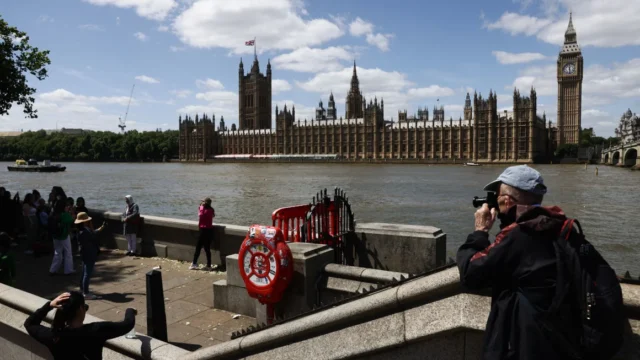Introduction: UK tourism decline
Once a premier destination for European tourists, the United Kingdom has experienced a notable decline in visitor numbers. As the UK grapples with various challenges, the incoming government faces the daunting task of revitalizing the tourism sector. This guide delves into the factors contributing to the decline and explores potential strategies for recovery.
The Current State of UK Tourism
Declining Visitor Numbers
In 2019, nearly 41 million overseas visitors traveled to the UK. By 2023, this number had dropped to 37.68 million, a 7.3% decrease. While most European countries saw an increase in tourist arrivals, the UK lagged behind. For instance, Italy set a new record for tourist arrivals in 2023.
Visa Applications Drop
The number of international visitors applying for tourist visas to the UK also fell by 19% compared to pre-pandemic levels. This decline underscores the broader challenges facing the UK’s tourism sector.
Factors Contributing to the Decline in UK tourism decline
Transport and Infrastructure Issues
One of the primary reasons for the decline in tourism is the frequent disruptions in the UK’s transport sector. Regular strikes and rail cancellations have made travel within the country unpredictable and frustrating for tourists. The Labour Party, in its pre-election manifesto, highlighted the dire state of the UK’s transport infrastructure, promising a decade-long plan to modernize it.
Environmental Concerns
The UK boasts a stunning coastline, but many of its beaches have become polluted with sewage, deterring potential visitors. Addressing environmental issues will be crucial in attracting tourists seeking natural beauty.
Policy Changes
Several policy changes have negatively impacted tourism. The elimination of tax-free shopping for tourists and the requirement for EU visitors to present passports have created additional barriers. These changes have made the UK less attractive compared to its European neighbors.
Safety and Security Perceptions
Rising Crime Rates
The rhetoric around safety in the UK has intensified. Former Prime Minister Rishi Sunak’s comments about the country descending into “mob rule” and the reported rise in knife crime in London have contributed to a perception of increased danger. These perceptions, whether accurate or not, can significantly influence tourists’ decisions.
Shifting Travel Trends
Post-Pandemic Preferences in UK tourism decline
The pandemic has shifted travel preferences. Many travelers are now seeking immersive, culturally rich experiences in destinations like Greece and Italy. The UK’s appeal, largely based on its historical and cultural heritage, has not adapted to these changing trends. English-speaking tourists, in particular, are looking for more exotic experiences that start with a foreign language.

Challenges in Tourism Promotion
Inadequate Marketing Budgets
VisitBritain, the UK’s tourism agency, operates on a significantly smaller budget compared to its counterparts in other countries. In 2024, VisitBritain’s marketing budget was around £19.8 million, compared to Ireland’s €80 million. This disparity hampers the UK’s ability to effectively promote itself as a tourist destination.
Pandemic Legacy
The UK’s chaotic travel rules during the pandemic created a lasting impact. Destinations that opened earlier to tourists gained a head start in attracting visitors. The UK’s slower reopening led to a loss of confidence among potential tourists, which has had a lingering effect.
Strategies for Revitalizing UK Tourism
Infrastructure Improvements
The incoming Labour government has pledged to modernize the UK’s transport infrastructure and bring the railways under public ownership. While these changes are part of a long-term plan, they are essential for creating a more reliable and appealing travel environment.
Promoting Lesser-Known Destinations
To compete with other European destinations, the UK needs to highlight its lesser-known attractions. Marketing campaigns should focus on unique experiences in regions outside of London, such as the Lake District or the Scottish Highlands.
Enhancing Visitor Experience
Improving the overall visitor experience is crucial. This includes making the visa application process more efficient and reinstating tax-free shopping for tourists. Creating a welcoming environment will help attract more international visitors.
The Role of Cultural Heritage
Leveraging Popular Culture
VisitBritain’s upcoming campaign, “Starring Great Britain,” aims to capitalize on filming locations popularized by movies and TV shows. This approach can attract fans of British culture and provide fresh reasons to visit.

Economic Impact of Tourism
Job Creation and Economic Growth
Tourism is a significant contributor to the UK’s economy, supporting over three million jobs and generating around 10% of the country’s GDP. A robust tourism sector can drive economic growth and provide much-needed revenue.
Private Sector Collaboration in UK tourism decline
Given budget constraints, collaboration with the private sector will be essential. By leveraging private investments, the UK can boost its promotional efforts and enhance tourism infrastructure.

Conclusion: UK tourism decline
Revitalizing the UK’s tourism sector requires a multifaceted approach. Addressing infrastructure issues, enhancing the visitor experience, and adapting to changing travel trends are all critical steps. With a new government committed to change, there is hope for a resurgence in UK tourism. By focusing on its unique strengths and addressing its weaknesses, the UK can once again become a top destination for international travelers.











